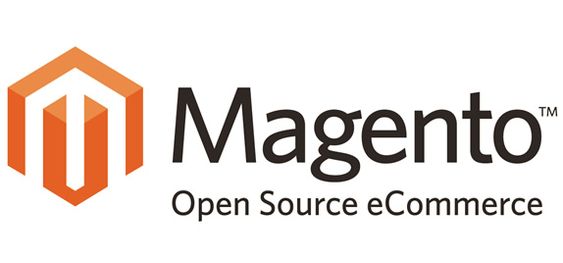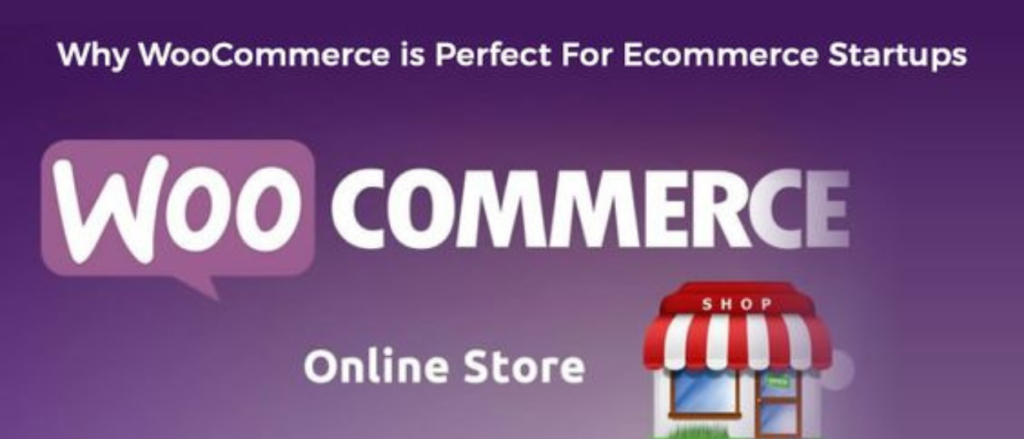Best Ecommerce Platforms for SEO in 2024

Importance of SEO Ecommerce Platform for Your Business
Today, customers like Ecommerce businesses more than traditional stores. Ordering online is easy and items can be delivered to your doorstep with just a few clicks.
SEO is a necessity for the success of any ecommerce business. SEO strategies are crucial for ecommerce businesses to boost visibility, attract customers, and drive sales growth. There are various SEO platforms in the market to help your business run daily operations smoothly without any hassle. Finding the best ecommerce platform for SEO is to ensure your ecommerce store ranks top in search engine’s results.
Ecommerce SEO platforms are important. They help you reach a bigger audience and increase visibility. They also offer extra features. This makes your brand more trustworthy for customers. Growing your brand without support or a platform solely through website traffic is challenging. Since your brand is new, it will take time for people to recognize it and trust it. Ecommerce seo platforms basically solve this issue, saving you time and energy.
Let’s discover best Ecommerce SEO platforms and their features which can be helpful for your ecommerce store/business.
Key Features to Look for in Top Ecommerce SEO Platform
Customizable URLs
- SEO-Friendly URLs: Make sure the platform allows you to create readable and keyword-rich customize urls.
- Structure: Look for platforms that support customizable URL structures to improve the user experience and SEO.
Meta Tags
- Meta Titles and Descriptions: The platform should allow you to customize meta titles and meta descriptions for each page, improving click-through rates from search engine results pages (SERPs).
- Header Tags (H1, H2, H3, etc.): Ability to use and customize header tags to structure content effectively.
Mobile-Friendliness
- Responsive Design: The platform should offer responsive design templates that support various devices, including smartphones and tablets.
- Mobile Optimization: Verify that platform supports mobile-specific optimizations for better performance.
Page Speed
- Fast Load Times: Look for platforms that are optimized for loading speed with good coding and fast server responses.
- Performance Tools: Integration with tools that help monitor and improve page speed.
XML Sitemap
- Automatic Generation: Platforms should automatically generate and update XML sitemaps, helping search engines discover and index your content.
- Custom Sitemaps: Ability to customize sitemaps to include or exclude specific pages and site speed.
Robots.txt
- File Management: Look for platforms that allow you to manage robots.txt files to control search engine crawling.
- Custom Directives: Ability to set custom directives for different pages and sections of your site.
Top 5 Best Ecommerce Platforms for SEO
1. BigCommerce

BigCommerce is a great ecommerce platform known for its special SEO capabilities and built-in features. It is designed to help businesses of all sizes improve their online visibility and drive organic traffic.
BigCommerce has excellent SEO tools already included. Businesses that want advanced SEO features without using additional apps or plugins should consider choosing BigCommerce.
Features:
- Built-in SEO tools and customizable URLs
- Fully responsive themes with AMP support
- Automatic sitemap generation and canonical tags
- Advanced 301 redirect management
- Built-in support for structured data
Pricing: Plans start at $29.95 per month.
Data-Driven Insights: According to a study, BigCommerce stores have experienced an average 28% increase in organic traffic year-over-year, highlighting its effectiveness in boosting search visibility.
2. Shopify

Shopify is one of the most popular ecommerce platforms, offering a user-friendly interface and detailed app integrations to improve SEO performance. It is ideal for businesses looking for an easy-to-use solution with strong SEO capabilities.
Shopify’s specialty lies in its user-friendly interface and considerable app marketplace, allowing users to easily merge advanced SEO tools and plugins without requiring deep technical knowledge, making it ideal for beginners and small businesses.
Features:
- User-friendly SEO tools and plugins
- Fully responsive, mobile-optimized themes
- Automatic sitemap and meta tag generation
- SSL certificates included in all plans
- Supports structured data and rich snippets
Pricing: Plans start at $29 per month.
Data-Driven Insights: Shopify reports that stores using its platform see a 94% average increase in organic traffic within the first 12 months of optimization efforts, showcasing its impact on search rankings.
3. Magento

Magento is a highly customizable ecommerce platform that offers advanced SEO features, making it suitable for large businesses with technical expertise. Its flexibility allows for detailed optimization to improve search engine rankings.
Magento’s specialty is its unmatched customization capabilities. It allows businesses to cover every aspect of their SEO strategy, making it ideal for large enterprises with specific needs and the technical resources to manage a highly optimized ecommerce site.
Features:
- Comprehensive SEO extensions and plugins
- Fully customizable URL structure
- Advanced metadata control and canonical tags
- Automatic generation of sitemaps
- Built-in support for rich snippets and structured data
Pricing: Free to use, with varying hosting costs.
Data-Driven Insights: Magento users have reported a 35% increase in organic search traffic after implementing SEO best practices, demonstrating its potential for driving significant traffic growth.
4. WooCommerce

Features:
- Extensive SEO plugins like Yoast SEO
- Highly customizable URL structure and metadata
- Full control over canonical tags and redirects
- Responsive and mobile-friendly themes
- Automatic generation of XML sitemaps
Pricing: Free to use, with varying hosting costs.
Data-Driven Insights: WooCommerce stores have seen an average 45% increase in organic traffic within the first year of using SEO plugins, highlighting its effectiveness in boosting search visibility.
5. Wix

Wix is a user-friendly website builder that offers great SEO tools and capabilities, making it a good choice for small to medium-sized businesses looking for an all-in-one solution.
Wix’s is user-friendly SEO Wiz tool, which guides users through the process of optimizing their site for search engines. This makes it an ideal platform for small businesses and individuals who may not have deep SEO knowledge but still want to achieve strong search engine performance.
Features:
- Built-in SEO Wiz for step-by-step optimization
- Customizable meta tags and URLs
- Automatic sitemap generation and submission
- Mobile-optimized and responsive themes
- SSL certificates included in all plans
Pricing: Plans start at $14 per month.
Data-Driven Insights: Wix users have reported a 30% increase in organic traffic within six months of using the SEO Wiz tool, demonstrating its ability to improve search engine rankings effectively.
Comparison of Top Best Ecommerce Platforms for SEO
| Feature/Aspect | Shopify | WooCommerce | BigCommerce | Magento |
|---|---|---|---|---|
| Ease of Use | User-friendly, easy to set up and manage | User-friendly but requires WordPress knowledge | Easy to use with built-in features | More complex, requires technical expertise |
| SEO Plugins/Extensions | Limited built-in SEO tools, relies on apps | Extensive plugins like Yoast SEO | Built-in tools, plus apps for advanced features | Comprehensive SEO extensions available |
| Customization | Limited customization without apps or coding | Highly customizable with plugins and coding | Limited customization compared to WooCommerce | Highly customizable but requires coding knowledge |
| Page Speed | Fast loading times with optimized themes | Dependent on hosting and theme optimization | Generally fast, with built-in CDN and speed tools | Depends on hosting and optimization |
| Mobile Optimization | Fully responsive themes and AMP support | Dependent on chosen theme | Fully responsive with AMP support | Requires theme optimization for mobile |
| URL Structure | Fixed URL structure, less flexibility | Highly flexible URL structure | Flexible but less than WooCommerce | Highly customizable URL structure |
| Meta Data Control | Full control via built-in tools and apps | Full control with plugins | Full control with built-in features | Full control with extensions |
| SSL Certificates | Included in all plans | Dependent on hosting provider | Included in all plans | Dependent on hosting provider |
| Sitemap Generation | Automatic sitemap generation | Automatic with plugins | Automatic sitemap generation | Automatic with extensions |
| Breadcrumb Navigation | Supported via apps | Fully supported with plugins | Built-in breadcrumb support | Fully supported |
| 301 Redirects | Supported via apps | Supported with plugins | Built-in support | Fully supported |
| Structured Data | Limited built-in, relies on apps | Extensive plugins available | Built-in and through apps | Fully supported through extensions |
| Canonical Tags | Automatic and customizable | Full control with plugins | Automatic and customizable | Fully supported |
| Pricing | Monthly fees starting from $29 | Free (hosting costs vary) | Monthly fees starting from $29.95 | Free (hosting costs vary) |
| Support and Resources | 24/7 support, extensive documentation | Community support, extensive documentation | 24/7 support, extensive documentation | Community support, extensive documentation |
Conclusion
Each of these are best Ecommerce platform for SEO offers unique features and benefits to different business needs. Whether you prioritize ease of use, customization, or advanced SEO capabilities, there is a platform suited to help you achieve your online store’s SEO goals and drive organic growth. By utilizing the strengths of these platforms, businesses can improve their visibility, attract more traffic, and ultimately boost their sales and revenue.


